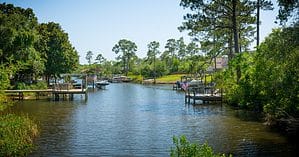These days more and more Americans are thinking about living, working, or retiring abroad. Since the COVID-19 pandemic, work-from-home career opportunities have expanded, setting workers free to live where they please. Some have decided to become “digital nomads,” traveling the world with a backpack and a laptop wherever the mood takes them. Others are finding it cheaper to sell their houses and go on a never-ending worldwide cruise than to try to retire in the United States. Small European villages are selling houses for a single euro to anyone who will renovate and live in them.
Portugal is an especially attractive option for its warm climate, high standard of living, laid-back lifestyle, affordability, and many other positive factors. It’s not for everyone, though. As great as Portugal is, you’ll want to pause and consider some of the drawbacks. We’ll help you go into the experience with your eyes wide open.
1. Life is Slow and Bureaucratic

Portugal has a relaxed pace of life, both when you want to relax and when you need to get stuff done.
©Sven Hansche/Shutterstock.com
If you’re seeking a more relaxed pace of life, you’ll find it in Portugal. But this extends to all areas of life, including processing routine paperwork. Making appointments, filing applications, and getting a driver’s license – all take much longer than in the States. Not just hours or days longer, but sometimes weeks and months longer. You’ll need to learn to accept that with grace, as the whole system is not going to change based on foreigners’ complaints.
An unfortunate side effect of the bureaucracy is corruption. Hiring a reputable business to take care of your paperwork can be a good way to protect yourself from unreasonable delays that may be subtle pressure for bribes. Pros suggest hiring a lawyer, accountant, or other professional services to take care of your taxes, immigration paperwork, rental agreements, and other essential business.
2. You Need to Learn Portuguese

You’ll get into innumerable situations in Portugal where knowing the language will be vitally important.
©BearFotos/Shutterstock.com
Many people speak English in Portugal, but official government business will be done in Portuguese. You’ll need to deal with home repairmen, medical personnel, mechanics, and the occasional random person who seems to have something really urgent to say. You won’t always be able to plan ahead to have an interpreter with you to help with these important interactions. And while Portugal has a vibrant expatriate community, if you don’t learn Portuguese you’ll always feel like an outsider to the local people and likely be perceived as such.
You can become a Portuguese citizen in just five years of residency but must demonstrate an A2 (pre-intermediate) level of language knowledge to qualify. Because Portugal is a member of the European Union, citizenship can expand your access and opportunities across the continent. Note too that learning Portuguese opens to you a whole new world of possibilities in Brazil, a tropical paradise. Want to see what it would be like to learn Portuguese? Try the DuoLingo app or hire a native speaker to tutor you via Zoom at Preply.
3. Housing Has Its Drawbacks

Portugal has extraordinary housing options that are quaintly beautiful on the outside.
©amurca/Shutterstock.com
Homes in Portugal usually do not have central heating and they are poorly insulated. It can get cold at night, so you’ll need to invest in space heaters or, if you’ve bought your house, make major HVAC improvements. While you’re at it, consider the plumbing. Toilets often have a pretty weak flush and don’t handle toilet paper well. Houses there also tend to have thin walls, so you may learn more than you want to know about your neighbors and their dramas. Keep this in mind when considering housing options. A free-standing home might meet your needs better if you need peace and quiet.
4. The Ocean is Cold

The Atlantic is pretty cold on the Portuguese coast, but that doesn’t deter surfers.
©DisobeyArt/Shutterstock.com
You moved to Portugal for its beautiful beaches, but you might find out you’d rather look than touch. Portugal is on the Atlantic Ocean, not the Mediterranean Sea. The water temperature near Lisbon doesn’t get higher than about 68 °F, a good 10 degrees colder than you’d find on the Italian coast, by contrast. Portugal is more of a place for sunbathing, walking on the beach, diving, or surfing in a wetsuit.
5. Aggressive Driving

Portugal is not for the faint of heart when it comes to driving.
©Panumas Yanuthai/Shutterstock.com
Driving in Portugal can be a chaotic experience. No matter how well you drive, you’ll experience tailgating, abrupt passing, and choice gestures thrown in your direction. Don’t be surprised when the person in front of you fails to signal or weaves a bit from too much wine with dinner. And forget the parking rules. Taking up a couple of spaces or using another car’s bumper as an indicator that you’ve backed up enough when parallel parking is par for the course.
6. Friendship Takes Effort

If you want to integrate into Portuguese culture, get involved in activities. If you can’t play a sport, be a fan!
©SibRapid/Shutterstock.com
If you work or study in a Portuguese institution, you can more easily develop a natural circle of Portuguese friends. Otherwise, you’ll need to make the effort to take a class, participate in community events, charities or religious organizations, sports, or other clubs, and boldly use your growing language skills to make friends. You can also offer English conversational tutoring services, even if you don’t need the money. This can be a good way to connect with students of all ages and their families on a regular basis.
7. Money May Be an Issue

Portugal uses the euro. You’ll need to make many transactions in cash as cards are not always accepted.
©Studio.G photography/Shutterstock.com
Credit and debit cards are not always as widely accepted in Portugal as they are in other parts of Western Europe. You’ll need to carry cash, and this can make you feel uncomfortable as a potential crime target. Prices of some things are also much higher than you are used to. Petrol and electricity prices are among the highest in Europe. Any sort of imported goods can be double the price you’d expect. These include cars, appliances, electronics, cosmetics, and toiletries. Salaries are lower in Portugal than in many other parts of the continent, so if you plan to get a job locally to support yourself, you may struggle financially. Your best bet is to have an online job in the States or another high-salary country or bring sufficient retirement savings with you to live without working.
8. Animal Treatment is Problematic

Dogs, like this Portuguese water dog, do not always get the “member of the family” treatment in Portugal.
©Nika Stemberger/Shutterstock.com
People in many countries, Portugal included, have somewhat different attitudes toward animals than is common in the United States. Many people think of their animal more in functional terms: an alarm to bark and scare off intruders, for example. They don’t always consider them a member of the family. In recent years the country has passed progressive legislation that has criminalized euthanasia of strays as a means of population control. However, in practical terms, casual animal neglect and abuse still occur.
You might see dogs chained on apartment balconies all day, bored and barking. You might witness training methods in a park that you find inappropriate or distressing. Owners may not be in the habit of cleaning up after their pets on walks, so you’ll need to be careful where you step. And unfortunately, Portugal is one of eight countries where bullfighting is still legal. Portuguese people may take offense at criticisms by outsiders of these practices. Different standards of animal treatment are cultural aspects of living and traveling abroad in general, not only in Portugal, that sensitive people need to be prepared for. Those who want to improve animal welfare should research the issue and learn from those who have already been doing this work, then decide where their time and talents can be most effective.
The Choice is Yours

In Portugal, the friendships you build with locals will determine the quality of your experience there.
©dabyki.nadya/Shutterstock.com
None of this is to say Portugal is a bad place to live or retire. But culture is often like an iceberg; there’s much more beneath the surface than originally meets the eye. Maybe you’ve vacationed in Portugal and enjoyed a well-appointed hotel with excellent English-speaking customer service, interpreters, and drivers. This isn’t a realistic idea of what life would be like if you moved there permanently unless you can afford to live in a hotel for the rest of your life. But if you’re up for the adventure of learning a new language, putting up with some inconveniences, and taking the initiative to engage non-judgmentally with the people and culture, then retirement in Portugal may be the paradise you’ve been dreaming of.
The photo featured at the top of this post is © iStock.com/SeanPavonePhoto
Thank you for reading! Have some feedback for us? Contact the AZ Animals editorial team.







